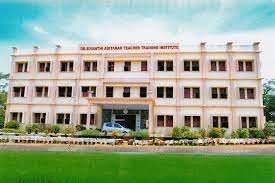Check eligibility criteria and fee structure for B.Ed in Biological Sciences. Plan your education path today
Eligibility & Fee Structure for B.Ed In Biological Sciences course
Bachelor of Education (B.Ed) in Biological Sciences is a specialized teacher training program that equips individuals with the necessary knowledge and skills to become effective biology educators. This program focuses on preparing teachers to teach biology at various levels of education, from secondary to higher secondary schools.
Eligibility Criteria for B.Ed in Biological Sciences:
-
Educational Qualification: To be eligible for a B.Ed in Biological Sciences, candidates typically need to have a bachelor's degree in Biological Sciences or a related field from a recognized university or college. The duration of the bachelor's degree should be a minimum of three years.
-
Minimum Percentage: Many institutions require candidates to have a minimum percentage in their qualifying degree, which usually ranges from 45% to 50%. However, this percentage requirement can vary from one institute to another, so it's essential to check the specific eligibility criteria of the institution you're interested in.
-
Nationality: In most cases, candidates must be Indian citizens to apply for a B.Ed program in Biological Sciences. However, some institutions may offer admissions to foreign nationals on a case-by-case basis.
-
Entrance Exam: Some universities and colleges conduct entrance exams for admission to B.Ed programs. Candidates must qualify in these exams to secure a seat. The entrance exam typically assesses the candidate's knowledge in Biological Sciences, teaching aptitude, and general awareness.
-
Age Limit: There is generally no specific age limit for B.Ed admissions, but again, this can vary depending on the institution's policies.
-
Reserved Categories: Reserved category candidates, such as Scheduled Castes (SC), Scheduled Tribes (ST), and Other Backward Classes (OBC), may have lower percentage requirements and additional relaxation in eligibility criteria as per government regulations.
-
Documents: Candidates need to submit relevant documents, including mark sheets, degree certificates, and identity proof, as part of the application process. They should also be prepared to provide a valid address and contact information.
Fee Structure for B.Ed in Biological Sciences:
The fee structure for a B.Ed program in Biological Sciences can vary widely depending on the institution, its location, and whether it is a government-funded or private institution. Here, we will provide a general overview of the components that may influence the fee structure:
-
Tuition Fees: Tuition fees constitute a significant portion of the overall cost. These fees cover the cost of academic instruction, access to laboratory facilities, and other educational resources. The tuition fees can vary based on the institution's reputation and infrastructure.
-
Hostel and Accommodation Fees: If you choose to stay in a hostel or accommodation provided by the institution, you will have to pay additional fees. Hostel fees can vary based on factors like room type, facilities provided, and the location of the institution.
-
Library and Lab Fees: Some institutions may charge separate fees for access to their libraries and laboratory facilities. These fees cover the maintenance and availability of books, journals, and scientific equipment.
-
Examination Fees: There are usually fees associated with taking semester or annual examinations. These fees cover the cost of examination administration, evaluation, and the issuance of certificates.
-
Registration and Admission Fees: When you initially enroll in the program, there may be one-time registration or admission fees. These fees contribute to administrative costs associated with processing applications and maintaining student records.
-
Miscellaneous Fees: Institutions may charge miscellaneous fees for various services, such as identity cards, sports facilities, extracurricular activities, and cultural events. These fees can add to the overall cost of the program.
-
Scholarships and Financial Aid: Many universities and colleges offer scholarships and financial aid to eligible students. These scholarships can significantly reduce the financial burden of pursuing a B.Ed program. Eligibility for scholarships is often based on merit, financial need, or reserved categories.
-
Government Subsidies: In some cases, government-funded institutions may offer B.Ed programs at lower fees, making them more affordable for students. Government subsidies can vary from one state to another.
-
Payment Schedule: Institutions may have different payment schedules, such as annual or semester-wise payment options. Students should be aware of these schedules and plan their finances accordingly.
 2 Years
2 Years
 Under Graduate
Under Graduate
 Education
Education
 Full Time
Full Time





















 back
back